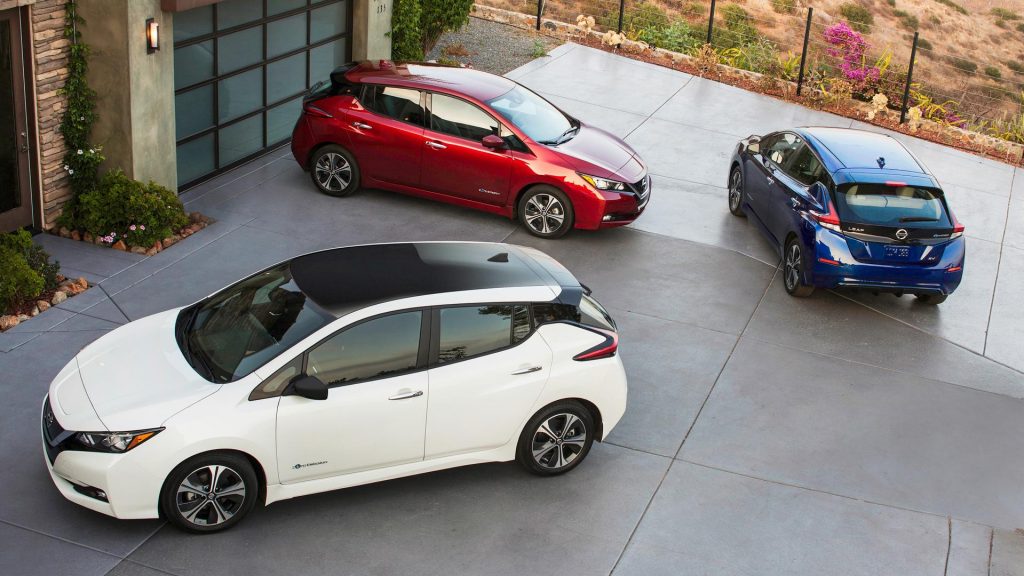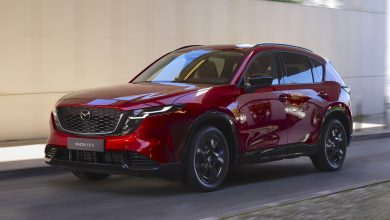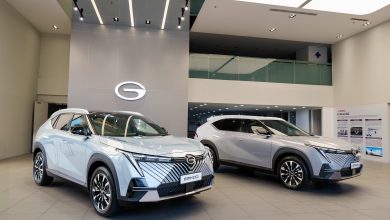Nissan Aims To Electrify All New Models By The Early 2030s
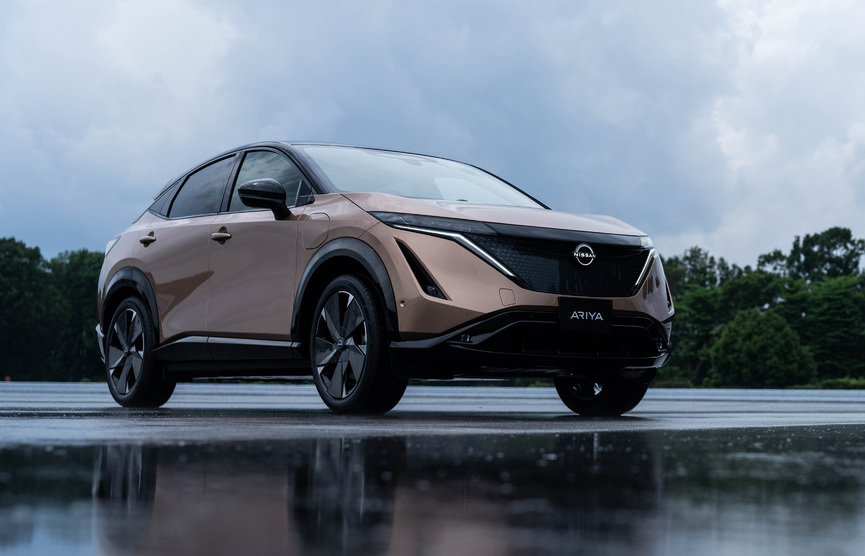
This endeavour is part of a pledge by Nissan to achieve carbon neutrality by 2050.
Nissan has recently announced that 100% of its new vehicle offerings in key markets will be electrified by the early 2030s. This transition towards electrification by the Japanese automaker is part of its pledge to achieve carbon neutral status by 2050.
Though no specific details have been officially provided thus far, Nissan has stated its intention to further develop its e-POWER electrified powertrains for further energy efficiency gains. The Japanese automaker is also keen to make strides in battery technology like solid-state batteries, in order to produce more efficient and cost-competitive EVs.
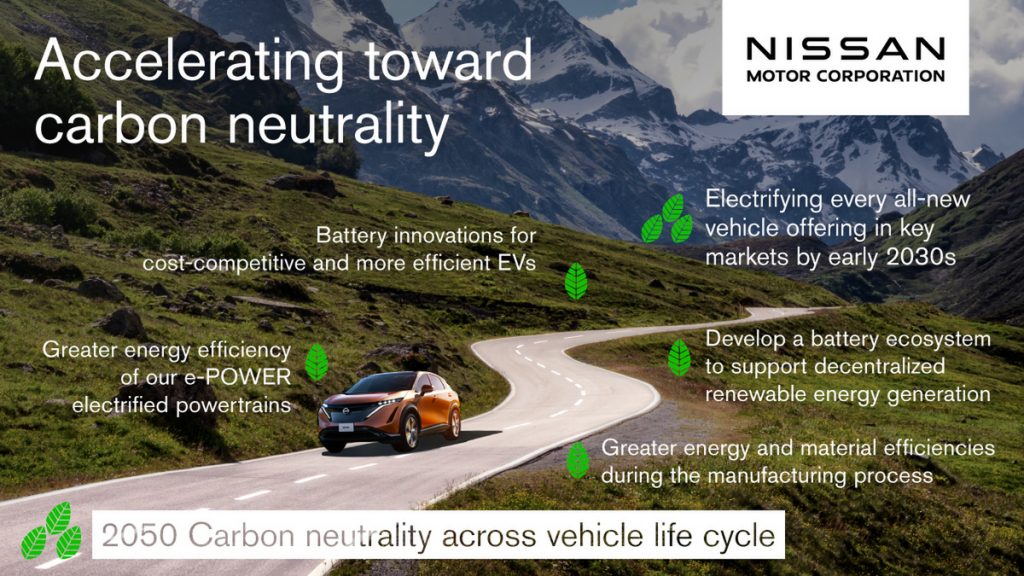
On the manufacturing front meanwhile, Nissan is to develop a ‘battery ecosystem to support decentralised, onsite power generation for buildings with renewable energy sources’. Additionally, the Japanese automaker is aims for greater energy and material efficiencies during the production process of new vehicles through manufacturing innovations that increase production productivity.
While admittedly all these steps towards a carbon neutral future are still rather vague, credit where it is due to Nissan as the Japanese automaker was one of the pioneers in the EV field before other automakers were on the electrification bandwagon. The Leaf which was launched way back in 2010 for instance was one of the world’s first viable all-electric hatchbacks, and since then over half a million examples have been made with over zero-emissions 10 billion miles (16 billion kilometres) cumulatively driven between them.
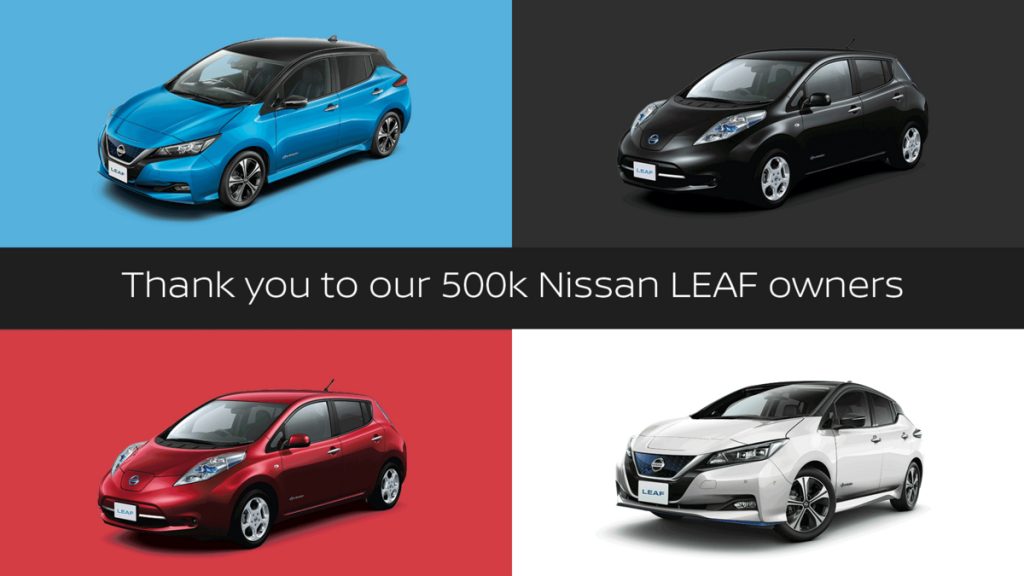
Furthermore, Nissan’s upcoming Ariya e-SUV looks to be a rather promising. Set to compete against the likes of the Audi e-tron, Ford Mustang Mach E and Jaguar I-Pace in the increasingly competitive all-electric crossover segment, this new EV offering is supposedly to be a turning point car for the Japanese automaker as part of its NEXT transformation plan.
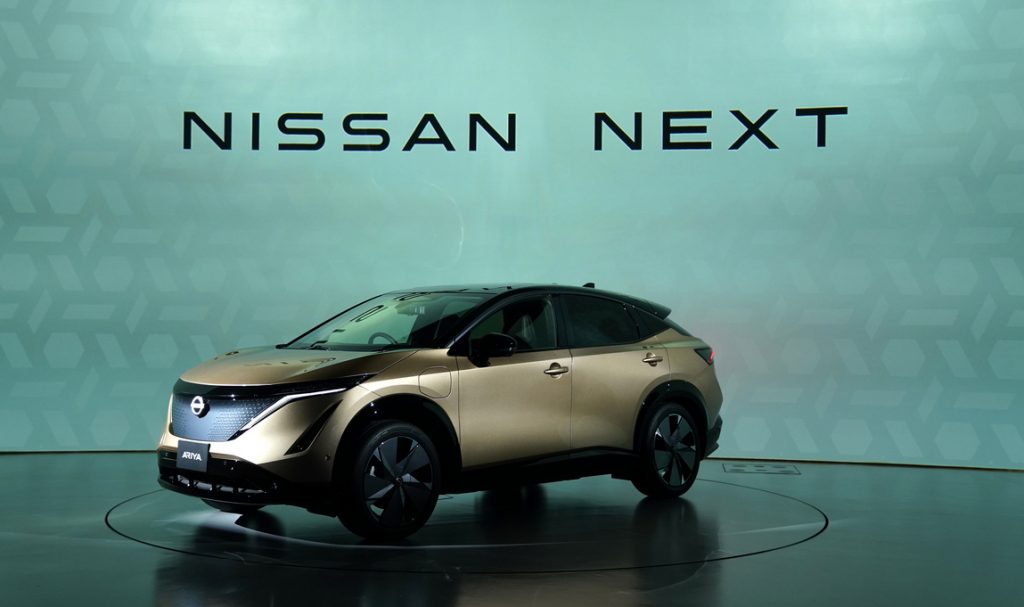
Curiously however, much like GM’s or in fact many other automaker’s pledges for electrification, Nissan’s plan does not actually explicitly say that its model lineup will transition towards all-electric drive. Having said that, with more and more cities and countries banning anything but full EVs into its jurisdictions, having any sort of internal combustion engine in cars may soon really be a thing of the past.
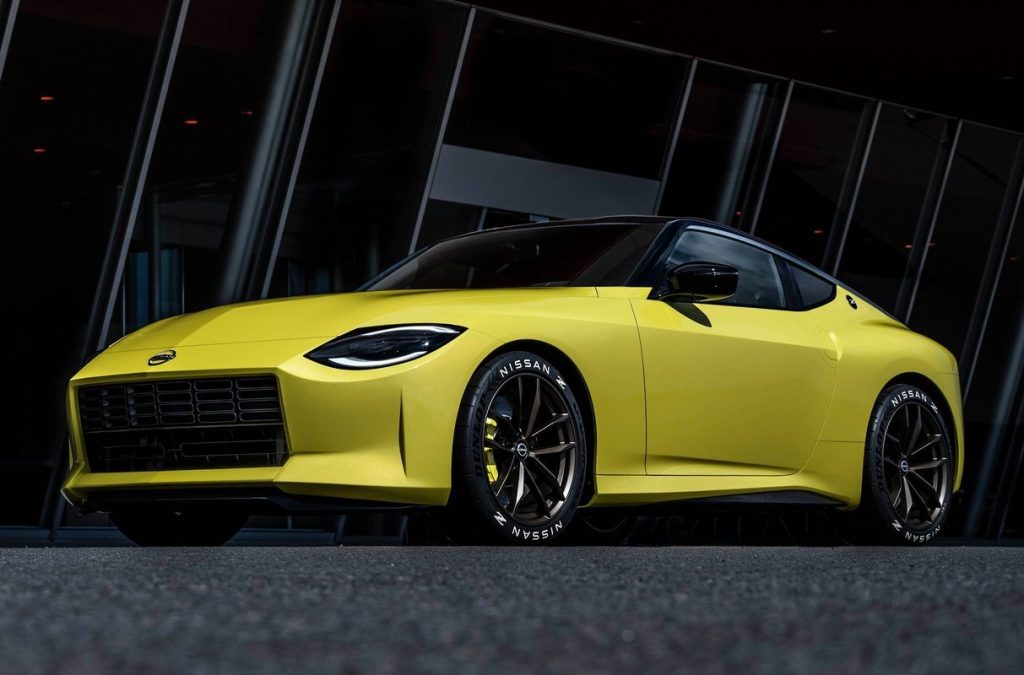
PRESS RELEASE: Nissan Motor Co., Ltd. has set the goal to achieve carbon neutrality across the company’s operations and the life cycle of its products by 2050. As part of this effort, by the early 2030s every all-new Nissan vehicle offering in key markets will be electrified.
Nissan will pursue further innovations in electrification and manufacturing technology to make progress on the company’s carbon neutrality goal in the following strategic areas:
- Battery innovations including solid-state and related technologies to develop cost-competitive and more efficient electric vehicles;
- Further development of Nissan’s e-POWER electrified powertrains to achieve greater energy efficiency;
- Development of a battery ecosystem to support decentralized, onsite power generation for buildings with renewable energy sources. Nissan anticipates increased collaboration with the energy sector to support the decarbonization of power grids;
- Manufacturing process innovations to support higher productivity in vehicle assembly, starting with the Nissan Intelligent Factory initiative. The company will also strive for greater energy and material efficiencies to support longer-term carbon neutrality ambitions.
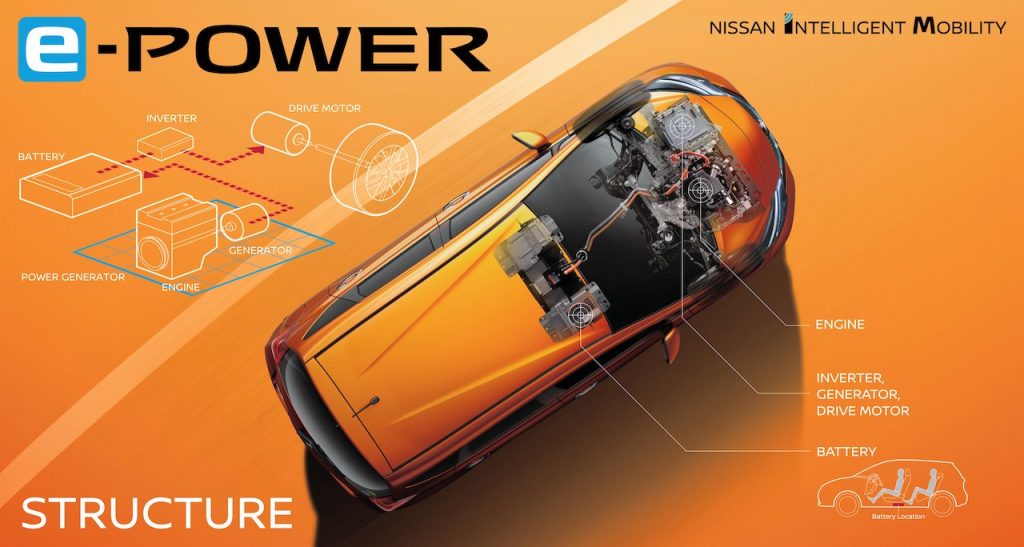
“We’re determined to help create a carbon neutral society and accelerate the global effort against climate change,” said Nissan CEO Makoto Uchida. “Our offering in electrified vehicles will continue to expand around the world, and this will make a major contribution to Nissan becoming carbon neutral. We will continue to drive innovation that enriches people’s lives as we pursue a sustainable future for all.”
Nissan’s goal builds on its decades-long programs to reduce emissions and provide electric vehicle technologies that benefit the environment and society. The company’s electrification and emissions reduction efforts support the aims of the U.N. Paris Agreement on climate change and global progress toward carbon neutrality by 2050.
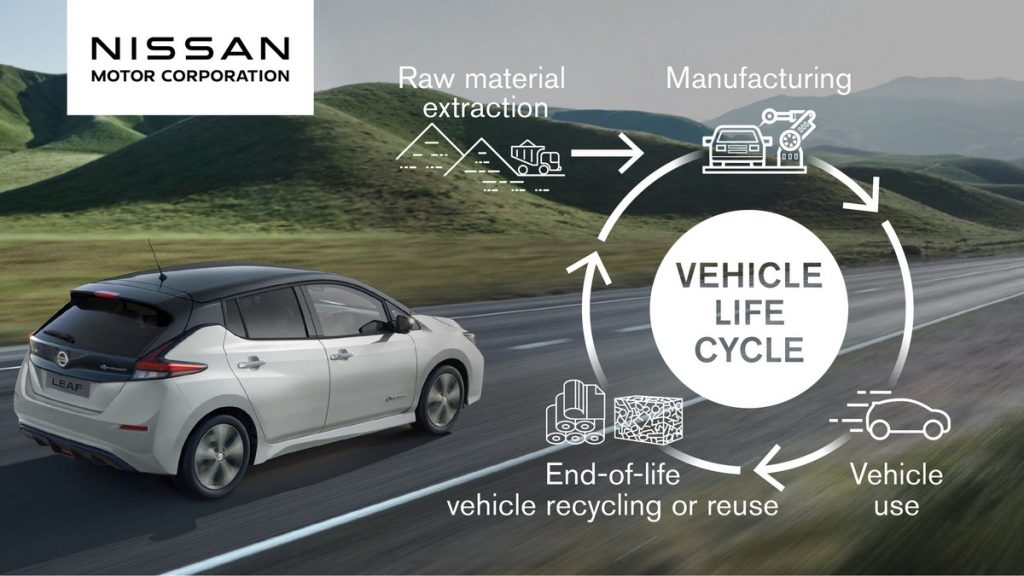
Nissan’s ambition also expands upon past initiatives under the Nissan Green Program and the company’s ongoing work to minimize the carbon footprint of its products and operations. The company introduced the world’s first mass-market electric car, the Nissan LEAF, and has sold more than 500,000 of the zero-emission vehicle to date. Nissan also continues to work with industry coalitions and authorities to develop infrastructure and raise public awareness about the benefits of electric vehicles.
With 100% of all-new vehicle offerings to be electrified in the key markets of Japan, China, the U.S. and Europe by the early 2030s, Nissan will also be among the leaders in driving the adoption of electric vehicle technology.
Nissan believes the automotive industry can be a driving force in meeting global environmental and climate needs through a commitment to innovation and impact reduction by collaborating with authorities and partners worldwide. When combined with the expansion of renewable energy and charging infrastructure, vehicle electrification and sustainable operations can help accelerate the arrival of a carbon neutral future.
